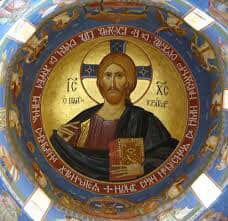 Gospel for 28 March 2020
Gospel for 28 March 2020
Saturday of the Fourth Week of Lent
John 7:40-52
The Law does not allow us to pass judgement on a man without hearing him
Several people who had been listening to Jesus said, ‘Surely he must be the prophet’, and some said, ‘He is the Christ’, but others said, ‘Would the Christ be from Galilee? Does not scripture say that the Christ must be descended from David and come from the town of Bethlehem?’ So the people could not agree about him. Some would have liked to arrest him, but no one actually laid hands on him.
The police went back to the chief priests and Pharisees who said to them, ‘Why haven’t you brought him?’ The police replied, ‘There has never been anybody who has spoken like him.’ ‘So’ the Pharisees answered ‘you have been led astray as well? Have any of the authorities believed in him? Any of the Pharisees? This rabble knows nothing about the Law – they are damned.’ One of them, Nicodemus – the same man who had come to Jesus earlier – said to them, ‘But surely the Law does not allow us to pass judgement on a man without giving him a hearing and discovering what he is about?’ To this they answered, ‘Are you a Galilean too? Go into the matter, and see for yourself: prophets do not come out of Galilee.’
Reflexion
These days of home stay has led many of us to be glued to our personal devices and social media. We are bombarded by the minute with all sorts of information and misinformation, about this or that, and especially about this pandemic. The problem is that most of us have no way of filtering the news to determine which is true and which is fake.
The people of Jesus’ time did not have social media, or any mass media for that matter. The veracity and accuracy of the information and knowledge received would have very much depended on the source - the teacher, the expert of the Mosaic Law. Only the trained teacher had authority to teach because of their specialised training. The common lay person wouldn’t dare to assume the post of a teacher if he was not specifically schooled in the area of the Mosaic Law and scriptures.
And so the controversy that surrounded Jesus, His teaching and ministry boiled down to this - who is He? Where did He come from? How did He acquire this knowledge? For all purposes, Jesus did not fit the bill. He didn’t have the necessary qualifications. He didn’t graduate from the right schools. He seemed to be a nobody.
But then, here He was teaching in the Temple and everyone, even His enemies, could recognise the power and truth that lay behind His words. But they were unable to accept them, their minds were closed-in, they were stuck in their familiar ways of categorising people and things and ultimately this led to a conflict which would culminate with the crucifixion of Jesus on the cross on Good Friday.
Earlier in the text (7:28-29), Jesus confronts their hypocrisy and pretentious ignorance: “You know me and also know where I am from.” And yet, the religious leaders of Jerusalem refuse to accept what they know to be true. They drew conclusions about Jesus’ identity by thinking on an earthly level in terms of His coming from Nazareth, while our Lord challenges them to elevate their thinking to a higher, spiritual level so as to perceive that Jesus’ real origin is from the Father who sent Him. God the Father, not Nazareth, is the real origin of our Lord. This is the basis of His authority!
But there is hope in a minority voice among those who consider themselves “experts.” He, unlike the others, is open to the Truth because He is a true seeker of the Truth and not threatened by it. Nicodemus alone speaks out for Jesus by appealing to a point of judicial procedure under the Law - Jesus has the right to be heard. But instead of following the Law, the religious authorities turn on Nicodemus and begin to attack him, not by using any rational argument but by a purely ad-hominem line of attack, “Are you a Galilean too?” But Nicodemus’ question had hit the mark - these experts of the law did not understand the Law themselves and even if they did, they were not following it.
Throughout Chapter 7 of John’s Gospel, various groups wrestle with the question, “Who is Jesus?” While the people in the story debate the question, we the believing reader should already know the answer. Jesus is the Son of God, the One sent by the Father. But often we seem too caught up with all the opinions and ideologies of our world, and this truth gets obscured. When Jesus’ dignity is being challenged by unbelievers, when our Christian Faith is mocked and reviled by others, would we have the courage to stand up for Him like Nicodemus?
Remember the words of our Lord in the gospel of Saint Luke ”Whoever is ashamed of me and my words, the Son of Man will be ashamed of them when he comes in his glory and in the glory of the Father and of the holy angels.” (Luke 9:26) If we wish to accompany our Lord into Holy Week, we must not be ashamed to stand up for Him. We must be ready to walk with Him to the cross and beyond.
